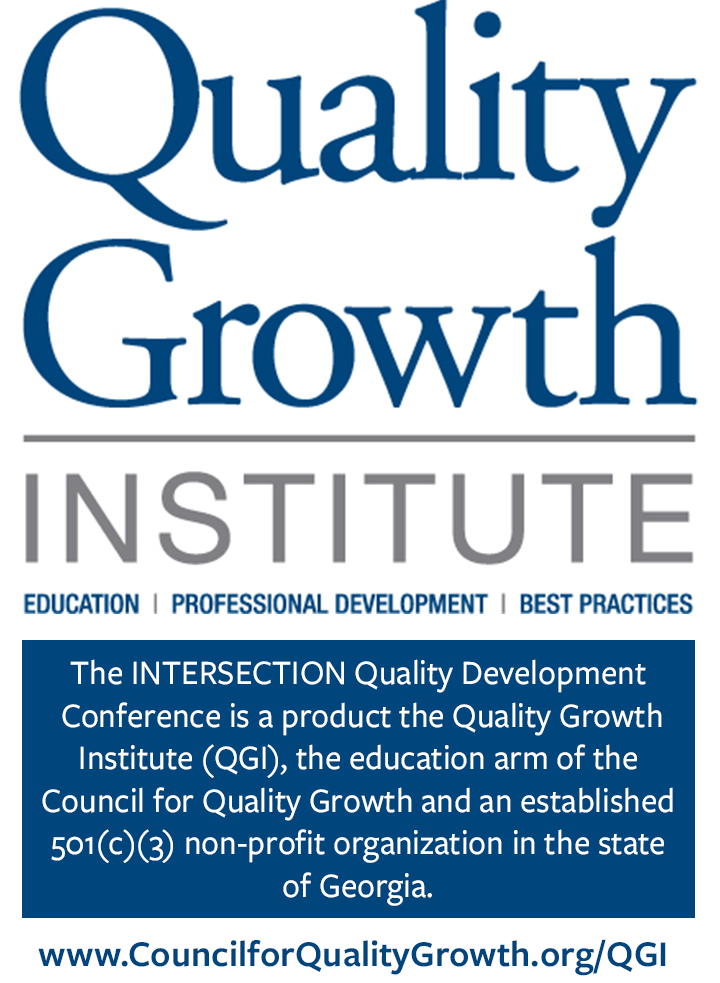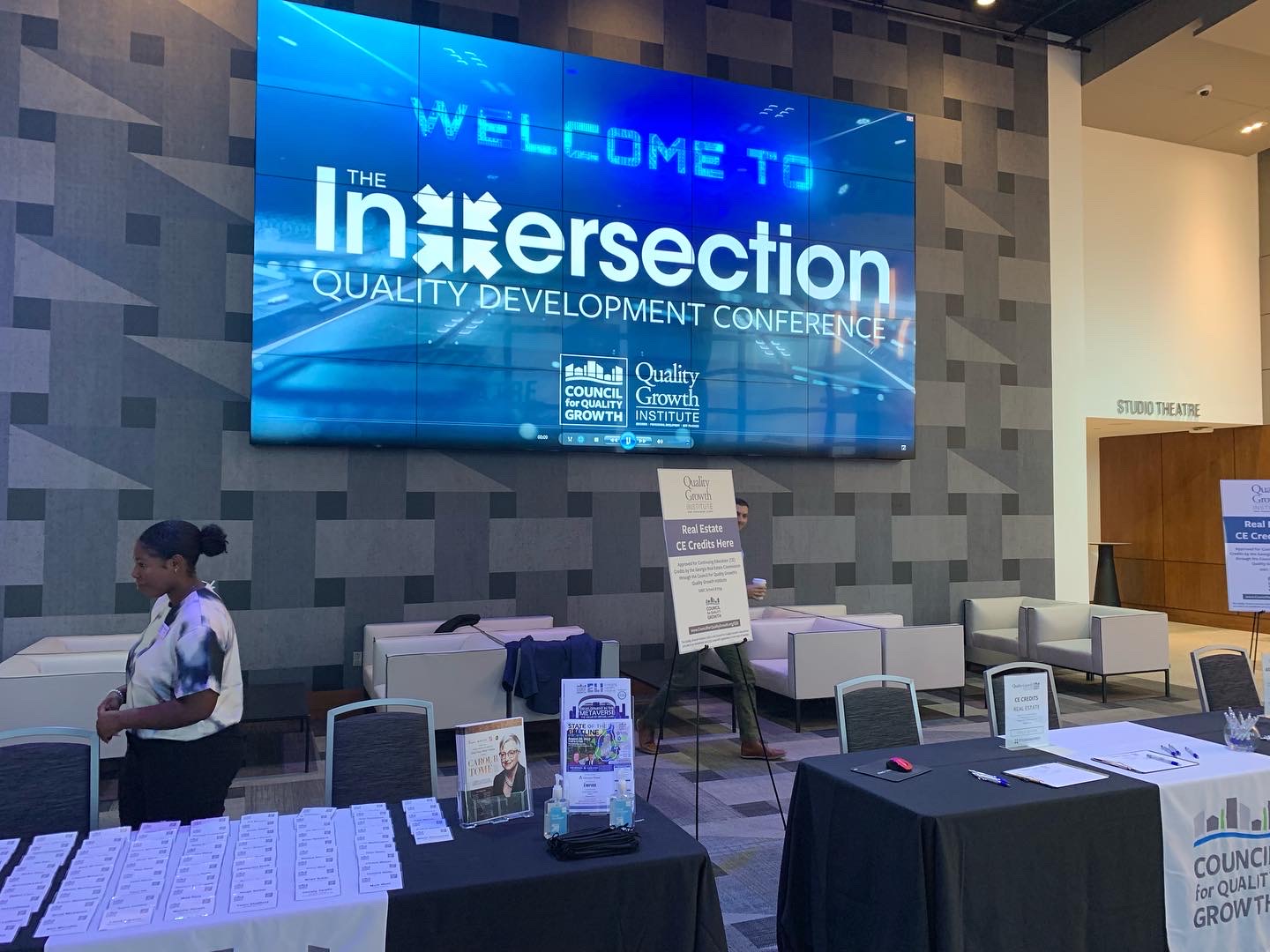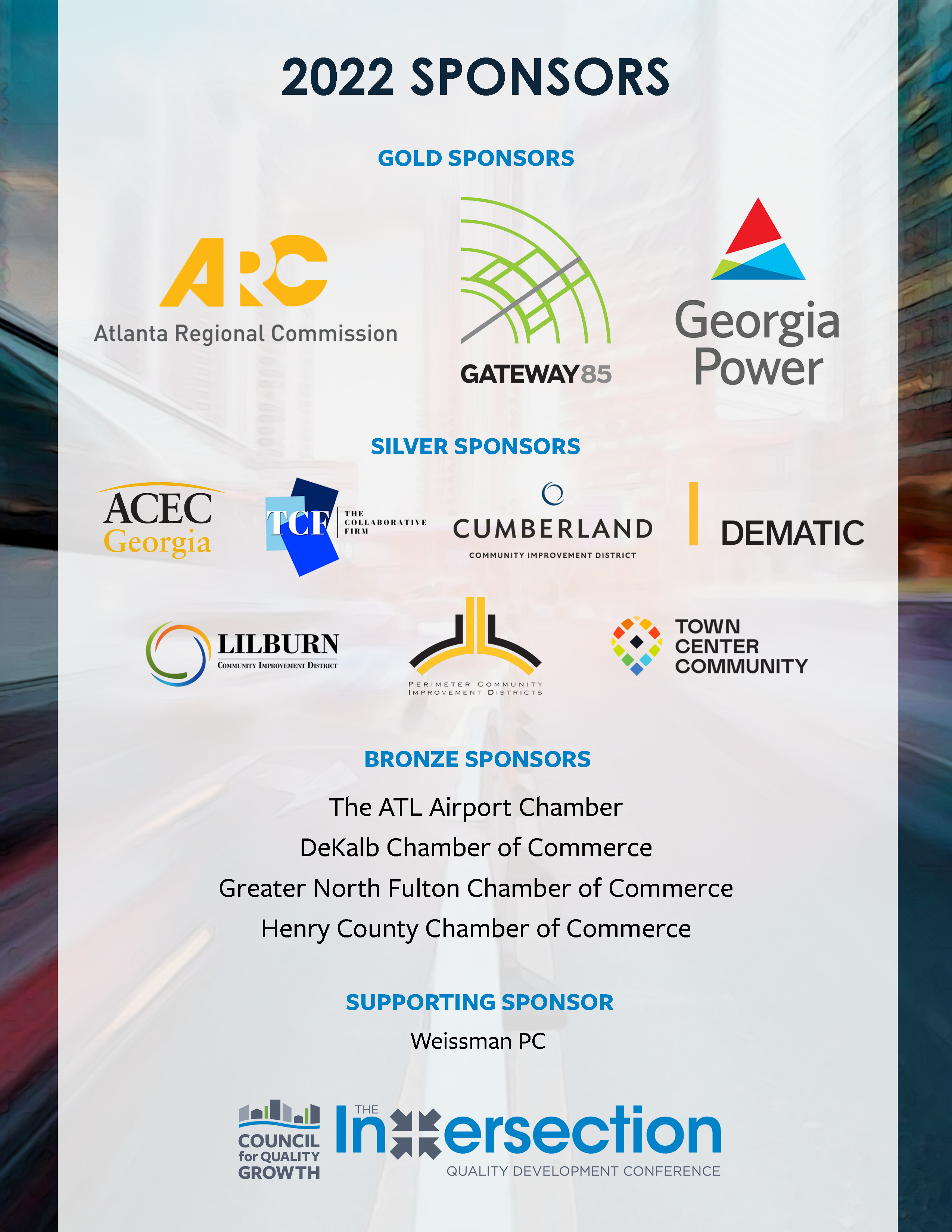 On August 11, 2022, the Council for Quality Growth convened its 2nd annual Quality Development Conference, The INTERSECTION. The conference was moderated by Greg Lindsay, Chief Communications Officer for Climate Alpha, who opened the half-day event by setting the scene of the dynamics of how the housing shortage, remote workers, supply chain disruption, and new infrastructure needs all play into what kind of changes we can expect to see for the metro Atlanta region.
On August 11, 2022, the Council for Quality Growth convened its 2nd annual Quality Development Conference, The INTERSECTION. The conference was moderated by Greg Lindsay, Chief Communications Officer for Climate Alpha, who opened the half-day event by setting the scene of the dynamics of how the housing shortage, remote workers, supply chain disruption, and new infrastructure needs all play into what kind of changes we can expect to see for the metro Atlanta region.
Skylar Olsen, Chief Economist for Zillow, opened the housing discussion with a national-level look at where the housing market stands and what’s likely to happen moving forward. Olsen looked at the return of different labor forces, the uncertainty of a pending recession, continually increasing interest rates, and dependence on general wealth have influenced the need for housing and our return to “normal” housing market. She predicts a cooling market is coming for Atlanta rather than a crashing one. She was then joined for a more locally focused housing panel by Ernest Brown, Board Member of Abundant Housing Atlanta, Paul Corley, Regional President of Empire Communities, and Marilynn Davis, Senior Advisor at HR&A. Moderated by Greg Lindsay, the panelists looked deeper into the issues in Atlanta specifically, including the need for attainable housing, inclusionary zoning, and the politics to make it happen.
 Arjun Ramani, Global Business & Economics Correspondent for The Economist, tuned in live from London to deliver his take on the future of workplaces and how migration patterns across U.S. cities are influencing remote workers and distributed workforces. Ramani analyzed survey data, real estate data, migration data, and occupancy data to argue that work from home (WFH) is here to stay. Even on the other side of the pandemic, about half of the U.S. workforce is still working full days from home and populations are continually migrating out of the city centers. This “Donut Effect” of outward migration is also compounded by the increase in home values and rental rates across metropolitan areas. Following Arjun, another local panel took the stage to discuss these topics when it comes to metro Atlanta specifically, including Jeffrey Brown, Senior Real Estate Portfolio Manager for Microsoft, Kate Oliveira, Managing Director of CBRE’s Americas Consulting, and Mark Toro, Principal of Toro Development Company, all representing large employers in the region. Whether it’s rethinking site selection, improving workplaces amenities, or finding new ways of encouraging collaboration, Atlanta companies are quickly adapting to the reality that remote work is here to stay and workplaces are changing.
Arjun Ramani, Global Business & Economics Correspondent for The Economist, tuned in live from London to deliver his take on the future of workplaces and how migration patterns across U.S. cities are influencing remote workers and distributed workforces. Ramani analyzed survey data, real estate data, migration data, and occupancy data to argue that work from home (WFH) is here to stay. Even on the other side of the pandemic, about half of the U.S. workforce is still working full days from home and populations are continually migrating out of the city centers. This “Donut Effect” of outward migration is also compounded by the increase in home values and rental rates across metropolitan areas. Following Arjun, another local panel took the stage to discuss these topics when it comes to metro Atlanta specifically, including Jeffrey Brown, Senior Real Estate Portfolio Manager for Microsoft, Kate Oliveira, Managing Director of CBRE’s Americas Consulting, and Mark Toro, Principal of Toro Development Company, all representing large employers in the region. Whether it’s rethinking site selection, improving workplaces amenities, or finding new ways of encouraging collaboration, Atlanta companies are quickly adapting to the reality that remote work is here to stay and workplaces are changing.
Jon Bell, Strategic Innovation at UPS’s Advanced Technology Group, began the national supply chain discussion with a look at UPS’s advanced Global Smart Logistics Network. This technology provides the next level of benefit for the company’s global customer base by making the network “elastic” and able to stretch when there are more packages to be delivered. Using robotics, drones, autonomous vehicles, sensors, and more, UPS is able to keep its competitive advantage by elevating customer experience, cutting costs, offering new services, and being sustainable in the process. With an average of 25 million deliveries and 10 million pick-ups, and over 100,000 moving assets or vehicles every day, Jon’s team at UPS must be at the forefront of supply chain innovation. Following Jon, the half-day conference concluded with a local discussion between Kia Georgia’s President & CEO, Stuart Countess, and Georgia Ports Authority’s Director of Business Development, John Petrino. These two discussed the need to build mobility infrastructure, including port expansion and the EV supply chain. Countess’ private corporation and Petrino’s public entity are working together to keep Georgia at the forefront of innovation as supply chain and mobility needs continue to evolve.
Re-watch the full recording of the live event here:
Download the Digital Program Here
Thank you to our 2022 Sponsors:

Event Photos


